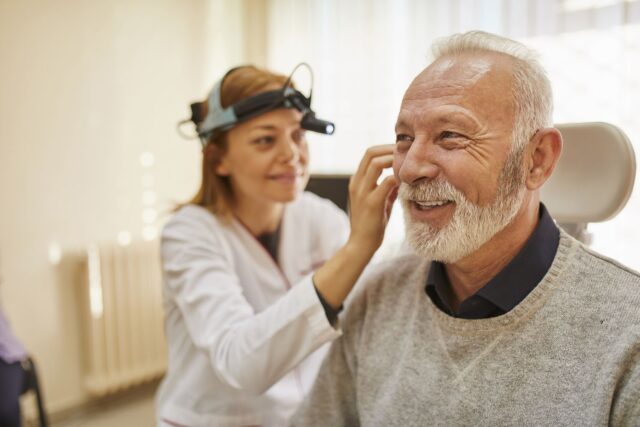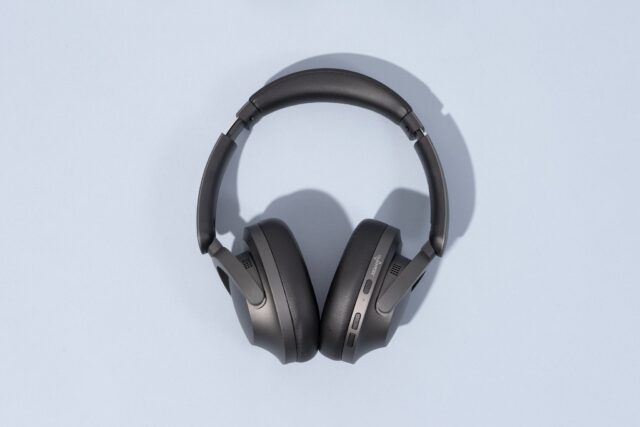
According to the American Hearing Loss Association, hearing loss is one of the most common conditions after heart disease and arthritis. Some people are born unable to hear, while others experience hearing loss over time. Hearing loss can be age-related, noise-induced, or due to injury or genetics.
Unfortunately, many people with hearing loss feel they are cut off from the world. They can no longer join in conversations like they used to or do their favorite activities. However, this isn’t entirely true. People with hearing loss can live happy, healthy lives if they follow the tips below:
1. Visit a Hearing Specialist

The most important piece of advice we can give you if you think or know you have hearing loss is to visit a hearing specialist. They will be able to tell you whether there are any treatment options available to you that can improve your hearing, such as hearing aids or cochlear implants. However, before you visit a specialist, make sure you do some research of your own into the different options available. Not all hearing devices are alike.
2. Let Your Friends, Family, and Co-Workers Know
Although many people find it daunting to tell people they love, care for or work with that they have hearing loss, it can help. It is much better to feel slightly embarrassed than to not be able to join in with conversations.
3. Let Others Know How They Can Help
As well as letting people know you have this condition, you must also explain how they can help you. Even those with the best intentions sometimes get things wrong. Some people believe that shouting is the best way to help you join in, and while this might be the case for you, for others, it’s moving to a quiet room away from loud noises.
4. Find a Quiet Place to Talk
When lots of things are happening around you, it can be challenging to hear what others are saying to you, not only for people who are hard of hearing but for those with reasonably good hearing ability. To overcome this issue, find a quieter place to talk, for example, a side room. This will allow you to hear what others say more easily.
5. Talk Face to Face

Most people who are hard of hearing rely heavily on watching the mouth movements of others. These movements allow them to follow what others are saying much more easily. Unfortunately, not everyone talks face-to-face these days. So, it’s important to remind people how much you rely on this.
6. Turn off Unnecessary Background Noise
Cutting down background noise can help you hear others. This is easy to do; simply turn off the TV, radio, etc., when you’re not listening to them. You should also consider asking others to turn down their music or TV if they are not actively watching or listening to them.
7. Plan Ahead
Another excellent tip for those hard of hearing is to plan ahead. For example, if you are going out for a meal with friends, contact the restaurant before you arrive to explain that you are hard of hearing. You can then discuss how they can help you during your meal, for example, by giving you a table in a quiet part of the restaurant.
8. Try Not to Get Frustrated

Struggling to hear what others have to say can be frustrating, but getting frustrated isn’t going to help the situation. Instead, you need to think of how you can overcome this issue.
9. Read Other People’s Body Language
Most people don’t realize that communication involves a lot more than words; it also depends on body language. You can easily work out what is being said by training yourself to be more aware of other people’s body language and actions.
10. Consider Using an Assisted Listening Device
If you attend conferences or meetings regularly, an assisted listening device may help you hear the main speaker more clearly. These devices work by amplifying the speaker sound above any other sound in the room.
11. Find Other Ways to Communicate

If you are struggling to hear what someone else has to say and you’ve tried all the tips above, you may need to find a different way to communicate, for example, with sign language or by writing down what you want to say. This way, both you and the other party will be able to get across what needs to be said.
12. Practice Active Listening
Active listening is pivotal. Train yourself to maintain eye contact, nod to show understanding, and ask clarifying questions. This engagement demonstrates attentiveness and aids in better comprehension, fostering more meaningful conversations.
13. Embrace Smartphone Apps
Numerous apps are designed to amplify and clarify sounds, enhancing the auditory experience of conversations and environmental noises. For instance, apps like Live Transcribe provide real-time transcription, bridging communication gaps effectively.
14. Invest in Noise-Canceling Headphones

These headphones mitigate background noises, aiding concentration on conversations or tasks at hand. Brands like Sony and Bose offer advanced noise-canceling features, enabling clearer, more focused auditory experiences.
15. Explore Captioning Services
Captions or subtitles can be invaluable for understanding dialogues in movies, TV shows, and videos. Many streaming services offer captioning features, allowing users to engage more profoundly with the content.
16. Master Speech Reading
Speech reading, observing lip movements and facial expressions, can substantially enhance understanding. Consider practicing or taking classes to develop this skill, opening up new avenues for comprehension in conversations.
17. Engage with Support Groups
Connecting with others experiencing similar challenges can be empowering. Support groups, both online and local, offer advice, share experiences, and provide emotional support, fostering a sense of community and mutual understanding.
Hearing loss is a significant public health issue in the United States and other countries worldwide. In fact, nearly 20% of Americans report some degree of hearing loss. From mild to severe, coping with changes in hearing ability is never easy; however, there is help available for you. If you’re suffering from hearing loss, try out the tips above.












